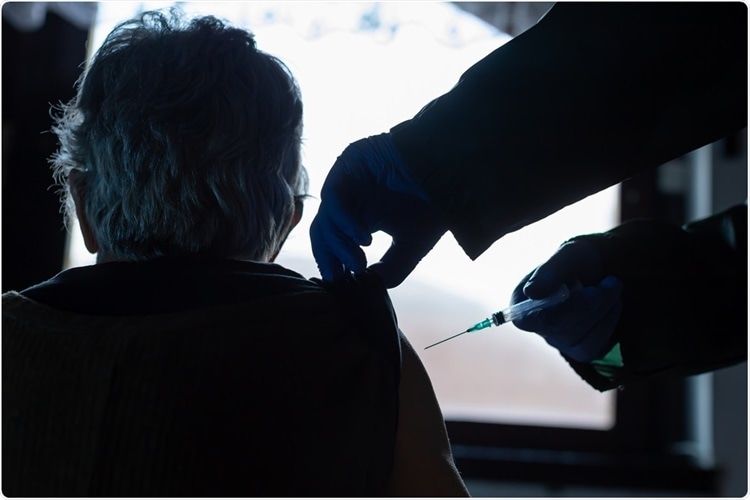New CDC report discusses efficacy of mRNA COVID vaccines in immunocompromised

The coronavirus disease 2019 (COVID-19) pandemic tore through the world with ferocity since it began in March 2020, leaving over five million and causing hundreds of millions of infections. In addition, the rapid spread of the severe acute respiratory syndrome coronavirus 2 (SARS-CoV-2) caused governments to enforce significant restrictions on social interactions, travel bans, and the closure of schools and businesses in an attempt to limit viral transmission.
However, the rollout of several vaccines against SARS-CoV-2, particularly those built on the messenger ribonucleic acid (mRNA) platform, has offered hope of a return to normalcy if vaccine coverage is achieved rapidly and comprehensively. The United States Centers for Disease Control and Prevention have recently reported the observed efficacy among the immunocompromised population following vaccination with mRNA vaccines against SARS-CoV-2.
Background
Immunocompromised individuals have poor humoral or cellular immunity, either due to underlying medical conditions or their use of certain medications. This subset of people may not benefit from COVID-19 vaccines as much as the immunocompetent due to the reduced robustness of their immune responses.
Making up about 3% of the U.S. adult population, immunocompromised individuals were targeted in the current study using data on hospitalizations among adults with COVID-19-like illness from the VISION Network. This covers nearly 190 hospitals across nine U.S. states from January 17 to September 5, 2021.
The advantage of this network is that it incorporates medical records with laboratory and vaccination records. The immunocompromised population was classified into five subgroups:
Solid tumors
Blood cancers
Rheumatologic or inflammatory disorders
Other intrinsic immune conditions or immunodeficiencies
Organ or stem cell transplants
Importantly, the scientists were not able to obtain data on the use of various immunosuppressive medications from this database.
Study findings
The study compared hospitalization rates in two cohorts who had received two doses of an mRNA vaccine with the second dose 14 days or more before the date of hospitalization. The first group comprised over 20,000 immunocompromised people, over half (53%) of whom were fully immunized. The second included more than 69,000 immunocompetent adults, with 43% being fully vaccinated.
The median age in both cohorts was comparable, at 68 and 70 years, respectively. About 60% in each group had received the Pfizer and Moderna vaccines. The median interval from the second dose to hospitalization was about 90 days in both groups.
The presence of SARS-CoV-2 infection was confirmed by molecular testing in 29% of the immunocompetent cohort. About a quarter of the cohort developed infection without vaccination, while 4% were fully vaccinated but had breakthrough infections. Among the immunocompromised, about 16% were infected, comprising 12% and 4% who were unvaccinated and fully vaccinated, respectively.
The calculation of vaccine efficacy (VE) was conducted based on the odds of testing positive for SARS-CoV-2 if vaccinated or unvaccinated, compensating for differences in age, location, time in the study period, and prevalent SARS-CoV-2 strain in the local community.
The VE against COVID-19-associated hospitalizations was 77% in the first cohort as compared to 90% in the immunocompetent group. There was no difference with the vaccine product with 81% and 71% VE for the Moderna and Pfizer vaccines, respectively. The patient’s age and the prevalent circulating variant at the time of hospitalization also did not alter the final results.
Before and when the Delta variant became dominant, the VE stood at 76% and 79% among the immunocompromised, as compared to 91% and 90% in the immunocompetent. The lowest VE was among those with organ or stem cell transplants, which was compared to 81% among those with rheumatologic disorders or chronic inflammation.
Implications
The current study shows that immunocompromised patients have lower benefits from the mRNA vaccines compared to others and remain at a higher risk of severe COVID-19 illness and hospitalization. The VE varies with the exact etiology or underlying condition among this subpopulation.
Nonetheless, the evident protection offered by the vaccines to immunocompromised individuals is important. This should be bolstered by a third dose of the vaccine, especially with moderate to severe immunocompromise, to prevent severe illness in case of infection with SARS-CoV-2.
Some immunocompromised groups of patients are at a greater risk than others, and these make up a larger proportion of hospitalizations related to breakthrough COVID-19.
Meanwhile, further studies should be done to evaluate how far VE is improved by additional doses, the effect of altered dose timing, the benefits of temporarily stopping immunosuppressive therapy, and the most effective vaccine in this group.
